Mental math skills Addition Worksheets for Ages 6-7
6 filtered results
-
From - To
Enhance your child's mental math skills with our engaging Addition Worksheets specially designed for ages 6-7. These worksheets focus on developing quick addition techniques and boosting number fluency, making learning fun and interactive. Each worksheet includes colorful graphics and age-appropriate exercises that help young learners solve addition problems mentally, fostering confidence in their math abilities. Ideal for classroom use or at-home practice, our resources empower children to perform calculations efficiently and improve their overall mathematical understanding. Encourage your little ones to practice regularly and watch them thrive in addition skills that are essential for their academic journey!
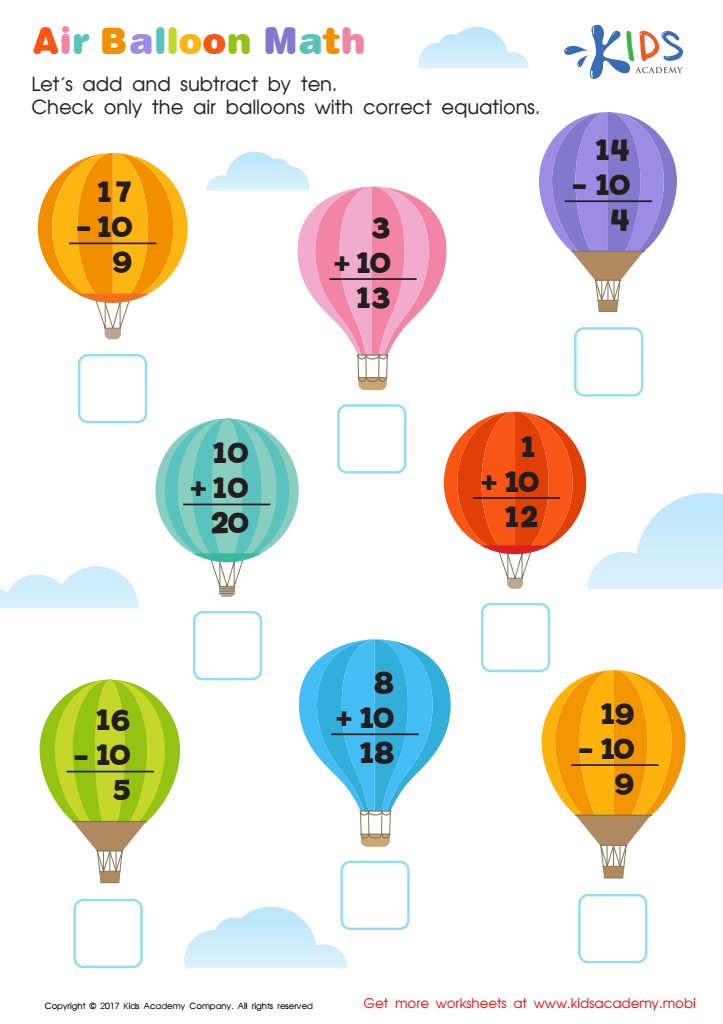

Air Balloon Math Worksheet
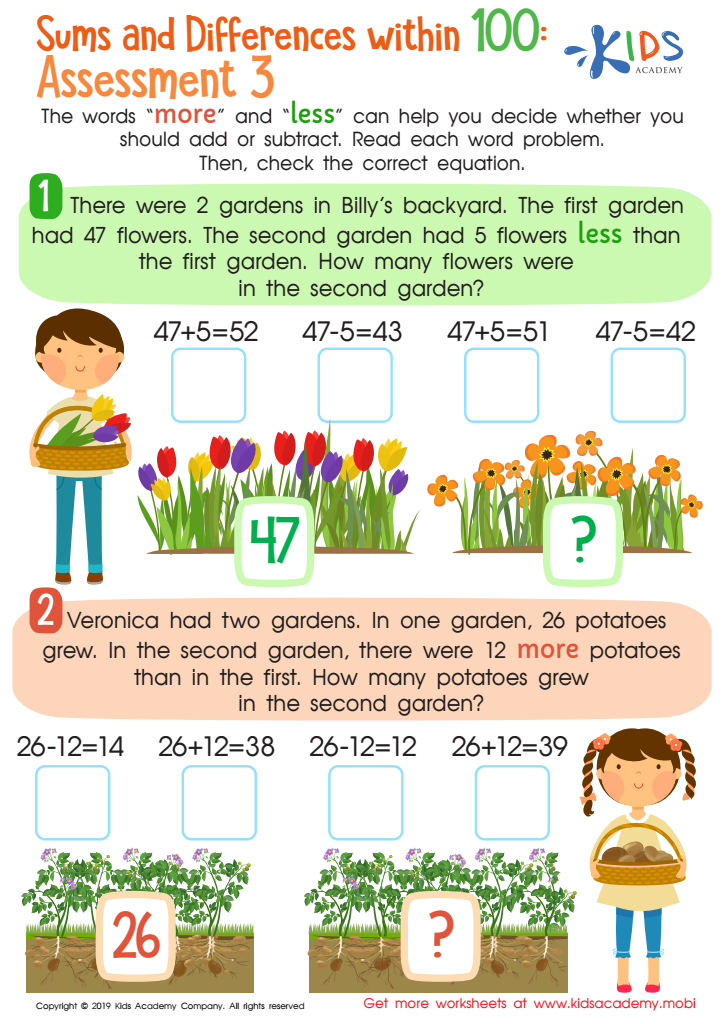

Sums and Differences Within 1 - Assessment 1 Worksheet
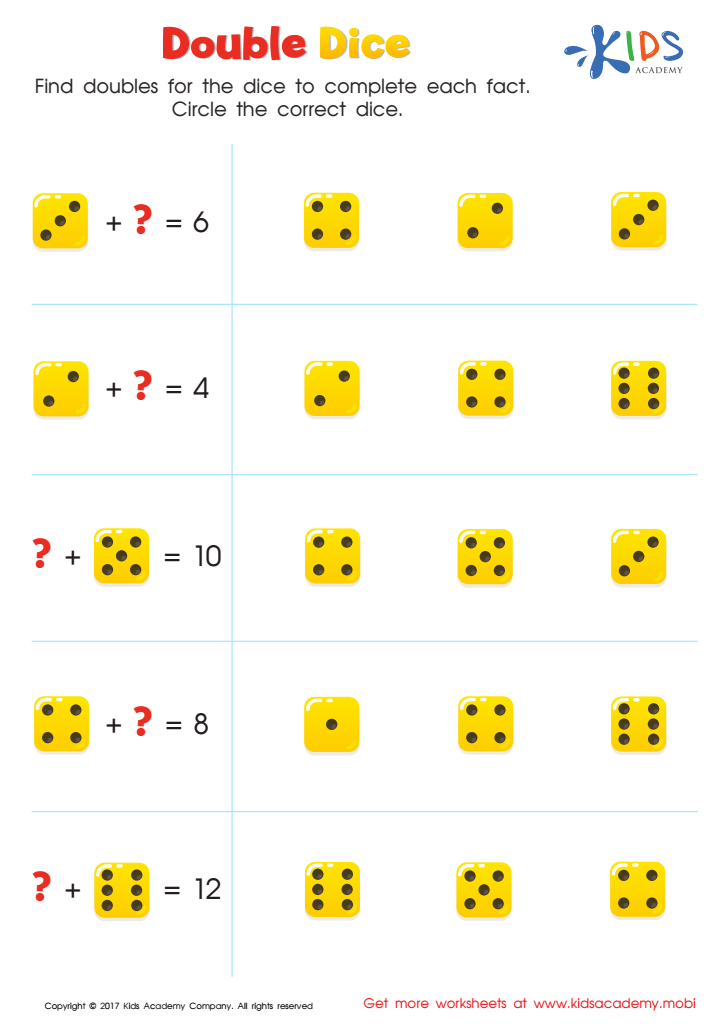

Addition Facts: Double Dice Worksheet
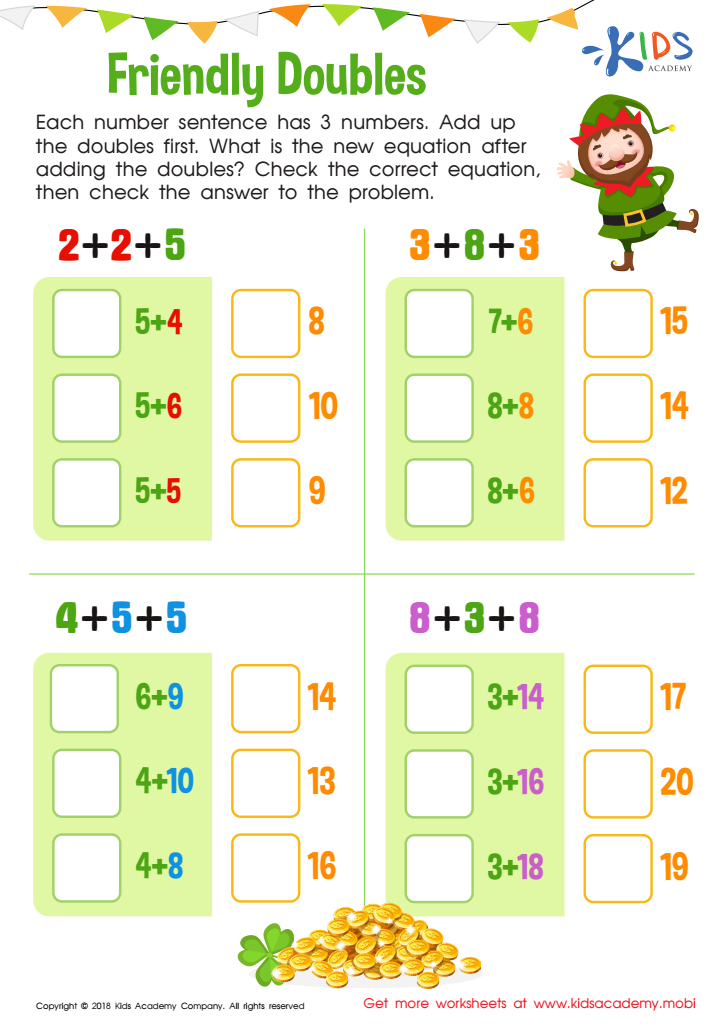

Friendly Doubles Worksheet
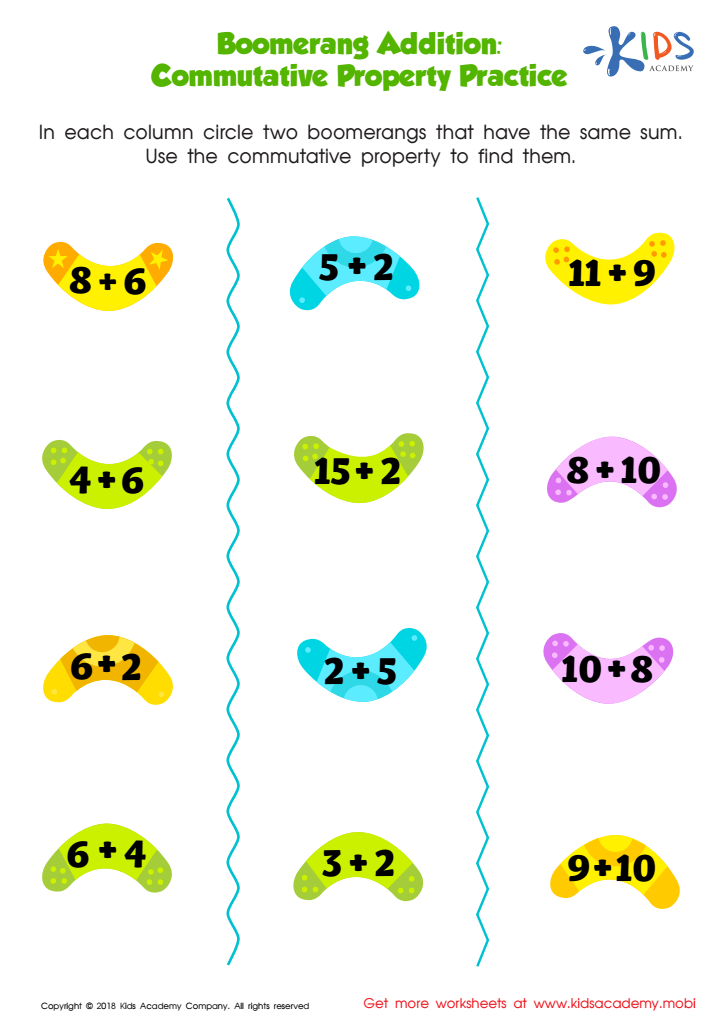

Boomerang Addition Worksheet
Mental math skills, particularly in addition, are crucial for children aged 6-7 as they form the foundation for future mathematical learning and critical thinking. At this developmental stage, children begin to grasp basic number concepts and relationships, making mental addition a key skill that bolsters their confidence and success in mathematics. By practicing mental math, children enhance their cognitive abilities, improve their problem-solving skills, and develop agility with numbers.
Parents and teachers play a vital role in nurturing these skills. When children can perform mental addition, they are more likely to engage positively with math, reducing anxiety and building a love for the subject. Additionally, mental math fosters quick thinking and helps children make connections between different mathematical concepts, which is essential for more advanced learning in later grades.
In everyday situations, such as grocery shopping or playing games, mental math helps children apply their skills in real life, reinforcing their understanding and making learning relevant. Engaging in fun practices at home or in the classroom, such as number games and challenges, supports children's development and empowers them to approach mathematics with confidence and enthusiasm. In essence, nurturing mental math skills sets the stage for lifelong mathematical proficiency and critical thinking.
 Assign to My Students
Assign to My Students









.jpg)











